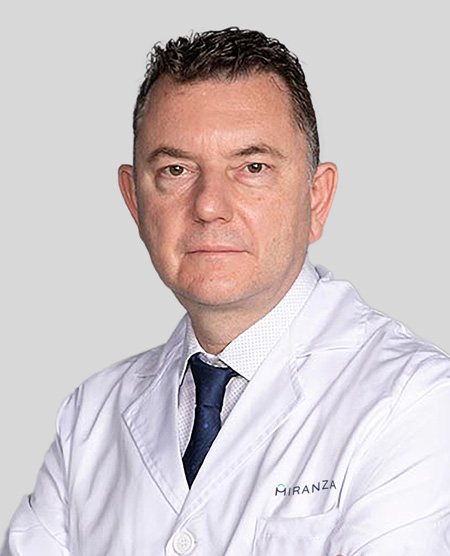
Advances in the treatment of retinal diseases
Advances in science are radically transforming the treatment of eye diseases. One of the most significant areas of this evolution is the development of a new generation of drugs for the retina. These medicines, designed specifically to address retinal conditions, are marking a turning point in patient treatment.
Dr Maximino Abraldes, a specialist at Miranza Instituto Gómez-Ulla and president of the Galician Ophthalmology Society (SGO), explains the keys to paving a new way forward in the approach to retinal diseases.
New horizons in tackling retinal diseases
Retina drugs offer a significant change in the way in which we treat diseases such as age-related macular degeneration (AMD) and diabetic macular oedema. With promising results, these medicines have improved the eyesight and quality of life of a great many people. Dr Maximino Abraldes highlights the fact that, “thanks to these advances, there is a new horizon in the treatment of patients with retinal disorders and diseases previously considered untreatable can now be handled more effectively”.
Surgical precision, key to reducing risks
Alongside the news regarding medical treatment in the consulting room, the precision of ophthalmology surgery has reached unprecedented levels. Dr Abraldes points out how advanced surgical techniques and ground-breaking instrumentation lead to safer and more effective procedures for patients with diseases such as diabetic retinopathy and retinal detachment. These advances have been crucial in improving results and reducing the risks associated with these surgeries
Prevention is the best option
In this innovative context, the retina expert from the Galician clinic Miranza Instituto Gómez-Ulla emphasises the importance of remembering prevention and permanent eye health care. “Regular eye check-ups are essential, particularly for patients with risk factors such as diabetes. Early diagnosis provides for a good prognosis and can avoid vision loss that, despite the advances, is sometimes still irreversible”.
Any change in vision, however minor it may be, should be consulted with a specialist. Symptoms such as line distortion or the loss of central vision can be signs of serious eye conditions that require immediate medical attention”, says Dr Abraldes. Furthermore, some diseases give no clear signs, so routine visits to the ophthalmologist are essential to detect them.
In short, the advances in new retina drugs and surgical precision in ophthalmology are leading to new possibilities for patients with eye diseases.
Ensuring preventive care and visiting a specialist following any warning sign can help with the treatment and early detection of any vision-associated disease.
